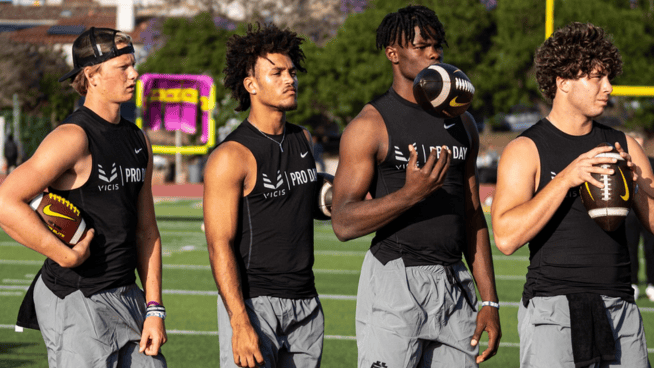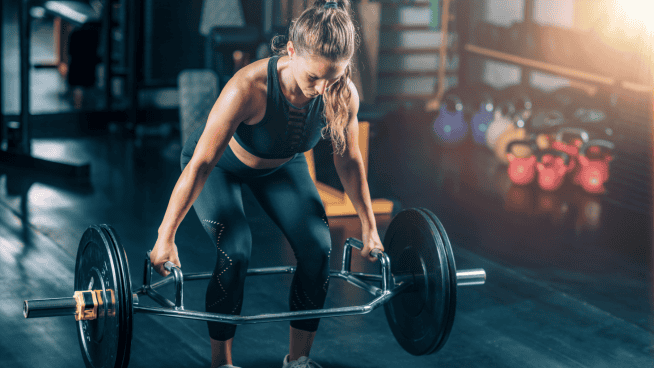Balancing Your Training Diet
One mistake many athletes make is focusing on one nutrient while missing the benefits of others.
For example, when trying to add muscle mass, athletes often focus on protein. Guess what? Carbohydrate is actually the fuel for intense workouts. Yes, you need protein, but as workouts increase in intensity, carbohydrates are what provide the differential. In other words, your protein intake should stay relatively the same as you add carbohydrates to meet the added caloric needs of practice. A small amount of additional protein may be needed during the initial stages of training, but then an adaptation takes place and protein needs level off somewhat. However, your need for fuel does not.
Keep in mind, excessive protein won’t cause your muscles to become bigger. Lifting stimulates the muscle, protein provides building blocks for repair and growth, and carbohydrate provides the fuel to do the work—which actually strengthens the muscle fibers and causes them to hypertrophy/ grow. Additionally, carbohydrate helps trigger the insulin reaction, which helps take both amino acids from protein and the carbohydrate into muscle cells. Carbohydrate may also help with immune function.
Examples: 150-lb. athlete needs 108-122 grams of protein per day (this equals 1.6-1.8 grams per kg/bw). A quarter pound burger or sandwich (4 oz. meat) has 34 grams of protein; a pint of milk 16 grams, which is almost half of daily needs in just one meal (50g).
Examples of good carb choices to include daily are: fruit flavored yogurt, plain or chocolate milk, fruits and 100 percent fruit juices, oatmeal, whole grain breads, cereals, rice, pastas or other grains, vegetables, white and sweet potatoes, and starchy vegetables.
Have at least one or two of these foods at each meal, and just after a workout.
Rich sources of protein are milk, cheese, eggs, meat, fish and poultry. Beans, nuts and soy foods contain protein in smaller amounts.
Heidi Skolnik is the nutrition consultant for the New York Giants. Andrea Chernus is a registered dietitian and exercise physiologist.
RECOMMENDED FOR YOU
MOST POPULAR
Balancing Your Training Diet
One mistake many athletes make is focusing on one nutrient while missing the benefits of others.
For example, when trying to add muscle mass, athletes often focus on protein. Guess what? Carbohydrate is actually the fuel for intense workouts. Yes, you need protein, but as workouts increase in intensity, carbohydrates are what provide the differential. In other words, your protein intake should stay relatively the same as you add carbohydrates to meet the added caloric needs of practice. A small amount of additional protein may be needed during the initial stages of training, but then an adaptation takes place and protein needs level off somewhat. However, your need for fuel does not.
Keep in mind, excessive protein won’t cause your muscles to become bigger. Lifting stimulates the muscle, protein provides building blocks for repair and growth, and carbohydrate provides the fuel to do the work—which actually strengthens the muscle fibers and causes them to hypertrophy/ grow. Additionally, carbohydrate helps trigger the insulin reaction, which helps take both amino acids from protein and the carbohydrate into muscle cells. Carbohydrate may also help with immune function.
Examples: 150-lb. athlete needs 108-122 grams of protein per day (this equals 1.6-1.8 grams per kg/bw). A quarter pound burger or sandwich (4 oz. meat) has 34 grams of protein; a pint of milk 16 grams, which is almost half of daily needs in just one meal (50g).
Examples of good carb choices to include daily are: fruit flavored yogurt, plain or chocolate milk, fruits and 100 percent fruit juices, oatmeal, whole grain breads, cereals, rice, pastas or other grains, vegetables, white and sweet potatoes, and starchy vegetables.
Have at least one or two of these foods at each meal, and just after a workout.
Rich sources of protein are milk, cheese, eggs, meat, fish and poultry. Beans, nuts and soy foods contain protein in smaller amounts.
Heidi Skolnik is the nutrition consultant for the New York Giants. Andrea Chernus is a registered dietitian and exercise physiologist.










